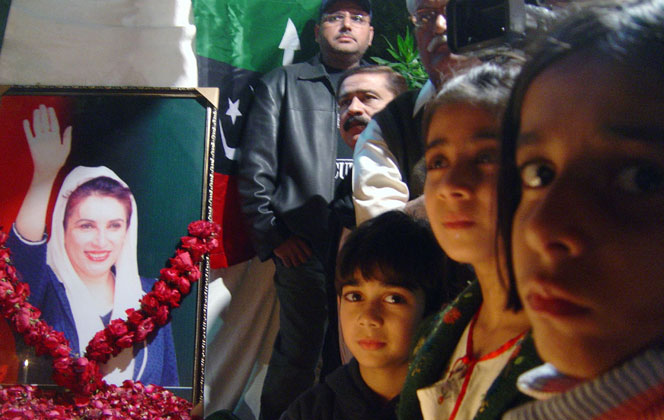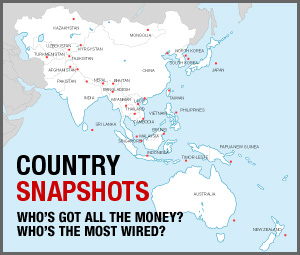APAC—Top 10 Stories of Decade
5. Assassination of Benazir BhuttoDecember 27, 2007
Daughter of a prime minister and herself twice holder of that post, Benazir Bhutto had returned to Pakistan in 2007 after eight years in exile to reclaim her somewhat tainted legacy. Her life was always going to be at risk: a suicide bomb attack killed 139 on the day of her homecoming. She survived that attack, but on December 27, while leaving a campaign rally ahead of the 2008 parliamentary elections, shots were fired at her vehicle, quickly followed by the detonation of a device by a suicide bomber. Controversy remains over what exactly happened to Bhutto: reports suggest she was either shot or else fractured her skull in the bomb blast. What is certain is that the attack underlined the severity of the national security issue that Pakistan was now facing with militant extremists, a problem exacerbated by the US invasion of Afghanistan, following which the ousted Taliban moved their base of operations into the Pakistani province of Waziristan. (Less reported: a secessionist movement in Balochistan.) By decade’s end, however, with Bhutto’s widower Asif Ali Zardari as head of state, government forces were beginning to score some successes against the insurgents, in the Swat Valley and elsewhere. Pakistan nonetheless remains one of the region’s true trouble spots.











